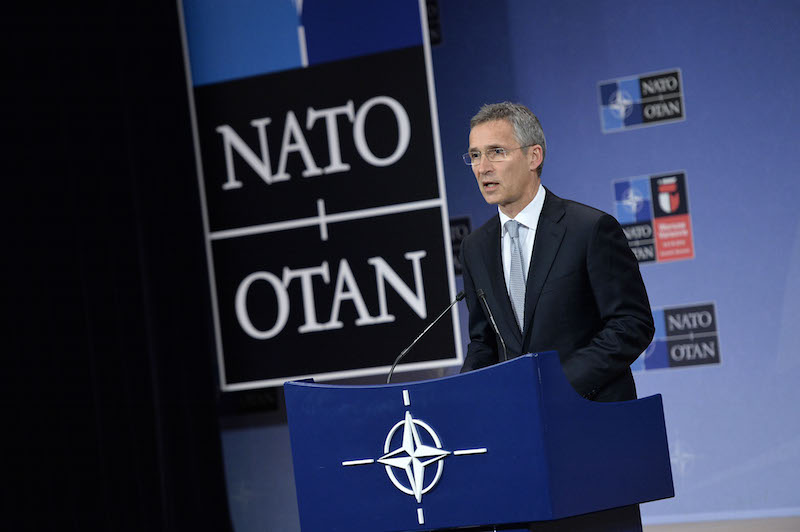Clandestine arms deals, an ambivalent human rights policy, and the appeasement of dictatorships… look out, world: Canada is back — and open for business.
After nearly a decade of Conservative disengagement, Minister of Foreign Affairs Stéphane Dion has vowed to take the country in the opposite direction.
“It is often a mistake to sever all ties with a regime that we dislike,” stated Dion in March. “On the contrary, we must speak to such regimes frankly, and clearly express our convictions, with a view to effecting positive change.”
In this speech, given at the University of Ottawa, Dion explained his foreign policy of “responsible conviction,” an approach which would theoretically walk a careful line between morality and responsibility. Essentially, we must aim to promote universal human rights, provided that this quest does not impinge upon a greater fiscal or protective duty to the Canadian public.
However, during the two months since Dion’s remarks, it seems “responsible conviction” is little more than a policy of apathy.
It began with the startling April revelations surrounding Canada’s $15 billion arms deal — the largest of its kind in Canadian history — with Saudi Arabia, a country which Freedom House rates as among the worst in the world. The disturbing contrasts are best revealed in list-form.
This is what we were told about the deal by the Liberals:
• As far back as early 2015, the Liberals stated on numerous occasions that they would honour the deal if elected, as it was already a “done deal” at the hands of Harper’s Conservatives, who negotiated the sale in 2014.
• On 11 October 2015, Trudeau stated in an appearance on Tout le mode en parle that the deal involved only “jeeps.”
• Trudeau’s Liberals also represented the deal as a private contract between a Canadian company — General Dynamics Land Systems Canada — and the Saudi government, emphasizing that Ottawa’s role would be minimal.
• On the campaign trail, senior Trudeau advisors publicly condemned the deal: in January 2015, Gerald Butts sarcastically tweeted, “Principled foreign policy indeed,” alongside an infographic comparing Saudi Arabia’s human rights record to that of the Islamic State. Roland Paris also offered a critique: “We’ve allowed an arms sale to trump human rights.”
And this is what we learned on April 12, 2016, after a lawsuit by University of Montreal law professor Daniel Turp brought the secret documents into the open:
• The export permits — the critical step in the approval process — for 70% of the proposed sale were signed by Minister Dion as late as April 8.
• The material which Trudeau called “jeeps” are, in fact, light-armoured vehicles (LAVs) with advanced weapons systems “capable of major destruction,” according to Ken Epps, policy advisor with anti-war collective Project Ploughshares.
• Human rights groups were not consulted prior to Dion’s approval of the export permits. Instead, the government relied only upon reports from the Department of National Defence, Global Affairs, and Innovation Canada — none of which could be considered objective external sources.
Minister Dion’s office stated that backing out of the contract at this stage “will simply hand the contract to another non-Canadian — possibly more ambivalent — provider.”
Sweden cancelled a similar, albeit much smaller deal — approximately $750 million over three years — in March 2015. A year later, the Netherlands became the first country in the European Union to ban arms exports to the Saudis, and other member states have since begun to fall into line.
Prime Minister Trudeau’s mandate letter to Minister Dion called for a “higher bar for openness and transparency in government.” This clandestine contract is a betrayal of such an admirable intention. It appeared the Liberals misrepresented the facts of the deal. NDP leader Tom Mulcair accused them of outright lying: “I am going to say this straight up and I don’t say it lightly: The government lied to Canadians about who signed what [and] when in the Saudi arms deal and that is a very serious matter.”
The majority of Canadians do not want this deal. Approximately 60% of the 1,000 respondents in a January-February 2016 Nanos Research poll stated that safeguarding human rights is more important than job creation, and 87% held a negative or “somewhat negative opinion” of Saudi Arabia.
Unfortunately, public discussion on the government’s ambivalence towards human rights was buried only three days later, when Prime Minister Trudeau explained quantum computing to a reporter and the world fell back in love.
Recent events, however, have prompted a new opportunity to bring this critical discussion back into the public eye, after Minister Dion’s disturbing rejection of Conservative MP James Bezan’s bill to freeze the offshore assets and ban human rights violators from Canada.
Bill C-267 is modeled after the Magnitsky Act, a groundbreaking piece of American legislation sponsored by high-profile investor Bill Browder after his lawyer, Sergei Magnitsky, was murdered in a Russian prison in 2009 for his investigation into government corruption in Russia.
Having already been passed by both the United States Congress and by the European Parliament, a Canadian version of the Magnitsky Act seemed inevitable, especially given the pre-election promises of all three major parties to support such legislation.
It is unsurprising, therefore, that Mr. Browder, one of the champions of C-267, has characterized Minister Dion’s rejection of the bill as unforgivable: “It’s a betrayal of Canada as a country with a history of moral foreign policy. It’s a betrayal of the explicit campaign promise by Mr. Trudeau’s party. And it’s a betrayal of justice – especially deplorable because it involves the appeasement of a dictatorial regime.”
He is right. Australian human rights litigator Geoffrey Robertson described the Magnitsky act as “a way of getting at the Auschwitz train drivers, the apparatchiks, the people who make a little bit of money from human rights abuses and generally keep under the radar.”
Minister Dion’s excuse that Canada’s Special Economic Measures Act already allows for the provisions of the Magnitsky Act is both misleading and incorrect. Our current legislation does not allow for asset freezes, which is a critical component of the law, as it is specifically designed to target corrupt officials. Bill C-267 sought to amend the Special Economic Measures Act to bring it into step with the Magnitsky Act.
With both the Saudis and the Russians, the Liberals have made the same mistake as their predecessors: they have erroneously conflated engagement with appeasement. This has enabled two opposite, yet similarly damaging, outcomes. Stephen Harper’s Conservatives chose to disengage from the world, rather than practice any form of appeasement. In contrast, Minister Dion has chosen to do the exact opposite: he would rather appease than disengage.
Both sides are mistaken. As former Liberal leader Bob Rae explains, “The key thing to remember is that engagement — whether with Russia, Iran, China or Saudi Arabia — should never prevent Canada from taking legitimate steps on human rights abuses in those countries.”
Minister Dion has rejected Harper’s policies without rejecting the thinking that governed them. His actions — or inactions — have resulted in an incoherent and unprincipled human rights policy, and his “responsible conviction” approach has been thus far devoid of conviction.
But it does not have to be this way. After the April 12 revelations, Minister Dion stated, “Should I become aware of credible information of violations related to this equipment, I will suspend or revoke the permits.” It is illegal under Canadian law to negotiate an arms deal if it is likely that they will be used against civilians. It is Minister Dion’s responsibility to listen to independent human rights groups like Amnesty International, which recently reported that Canadian-made LAVs have been utilized by the Saudis to perpetrate human rights abuses, and that “To supply arms to Saudi Arabia with full knowledge of [its human rights] record is to risk being an accomplice to these violations.”
Minister Dion has been asked to reverse his position on Bill C-267. A petition to promote this bill is presently circulating, and all Canadians have been encouraged to sign. As the document states, “By rejecting important legislation targeting those who engage in human rights abuses and corruption, the Canadian government would surrender the very values that all Canadians share – democracy, the rule of law, and basic human rights.” A petition to block the Saudi arms deal is also under circulation, with over 20,000 signatures thus far.
Minister Dion must recognize that while the rhetoric of “responsible conviction” may resonate with Canadians, his actions do not. For most Canadians, we elected a government that preached the sanctity of human security, but since coming into office it has exhibited mostly apathy. For the sake of vulnerable persons across the world, it must do better.
Photo: Stéphane Dion at Carleton University (2009), by Grant Oyston via Wikimedia Commons. Licensed under CC BY-SA 3.0.
Disclaimer: Any views or opinions expressed in articles are solely those of the authors and do not necessarily represent the views of the NATO Association of Canada.




